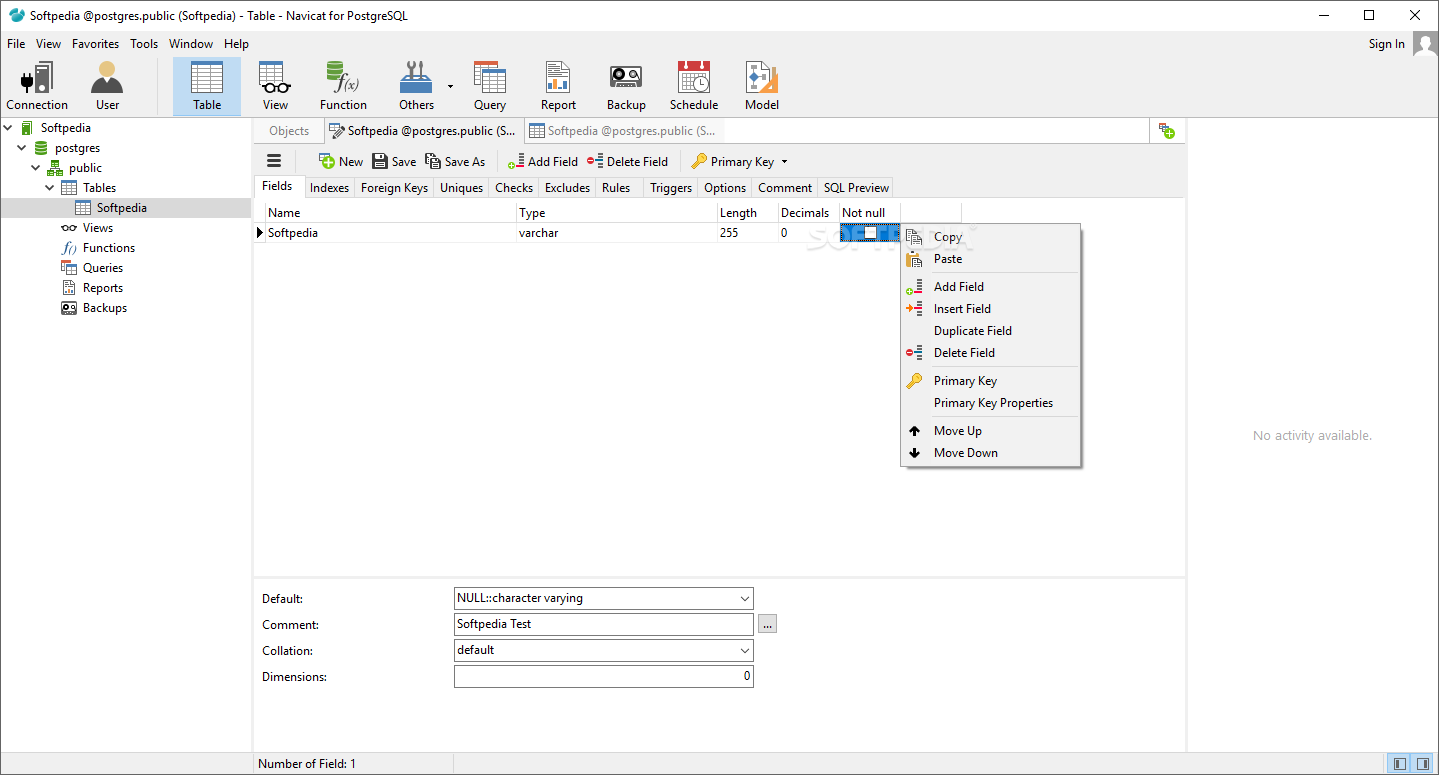

Here's our "PostgreSQL Test DB 1" instance in the Licensed list: To activate the instance, we can locate it in the Unlicensed Instances list, check the box beside it, and click the License button to move it into the Licensed Instances list. To do that, we'll need to assign a token to it via Configurations > Activate Tolens & License Instances. Now that we've added our PostgreSQL instance, we're ready to activate it. Once you've entered all of the above information, click the "New" button to create the new instance. If you do not provide this login, you can still monitor your server, but system performance metrics will not be shown. Navicat Monitor can also collect the DB server's system performance metrics such as CPU and memory resources.

It allows you to connect your servers even if remote connections are disabled or are blocked by firewalls.

Navicat Monitor can connect the database server over a secure SSH tunnel to send and receive monitoring data. Select the PostgreSQL item to open the New PostgreSQL Instance dialog: Doing so presents a context list of available database types - both traditional and cloud-based: To do that, we simply need to click the "+New Instance" button at the top of the screen. In order to monitor our PostgreSQL instance, we need to add it to this screen. You can see all of the monitored database instances on the Overview screen. Today's blog will provide a quick guide on getting setup to monitor your be PostgreSQL instances using Navicat Monitor 3.0. One of the most noteworthy changes between version 2 and 3 is added support for PostgreSQL, including an SQL Profiler for PostgreSQL instances. Unsurprisingly, it packs many outstanding new features, as well as numerous improvements to existing features. Version 3 of Navicat Monitor has just be released. Monitoring PostgreSQL with Navicat Monitor 3.0 by Robert Gravelle


 0 kommentar(er)
0 kommentar(er)
